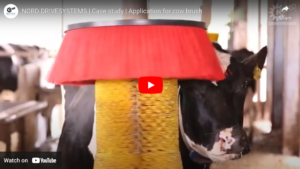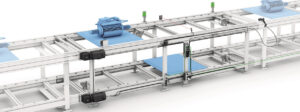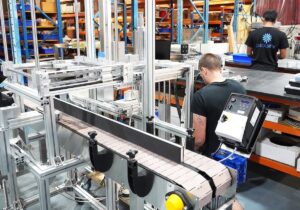It’s now well established that industry is in the midst of a new Industrial Revolution otherwise known as ‘Industry 4.0’.
What’s less clear is the scale of the changes we can expect, and how manufacturing jobs, work roles and ways of working will be affected. This cornucopia of ‘unknowns’ has generated significant challenges for educators, especially in the vocational education & training (VET) sector, who struggle to make sense of what these new horizons might mean for education and the way students (including apprentices) should be prepared for the workforce.
At the threshold of Industry 4.0—the technology and innovation Industrial Revolution—we are only beginning to notice a profound shift taking place. The magnitude of this transformation is, according to the founder and executive chairman of the World Economic Forum, Klaus Schwab, unlike anything that humankind has experienced in history, and the industry poised to lead the Australian economy into the 21st century is advanced manufacturing—an industry in the midst of a historic transformation across the entire industrialised world.
The Productivity Commission has already confirmed that the labour market will change significantly over coming years, and while the enormity of this change is yet to be fully understood, it has not deterred the Government from promising a ‘pipeline’ of suitably qualified workers with the skills, capabilities and knowhow required to resource the new industrial landscape. So what sort of skills, capabilities and know-how will the advanced manufacturing industry be needing from its future workforce?
Industry groups including Manufacturing Skills Australia (MSA) have asserted the need to begin equipping manufacturing workers with a gamut of abilities and attributes that appear to be, at present, mostly excluded from apprenticeship trade training. Some may even say they are incongruent of the competency-based system in which apprentices are currently trained.
Some of the skills and attributes MSA mention include: adaptability; problem solving capabilities; creative thinking; the ability to design and innovate; the ability to use digital platforms; the ability to develop higher-level interpersonal/organisational skills; and ‘broad-based’ capabilities. Many VET educators would agree that these skills and attributes are (or at least are likely to be) essential for their students and apprentices to thrive in the manufacturing industry of the future, but question the VET sector’s ability to accommodate this challenge.
Given the highly regulated structure of VET (including training packages, competency-based training & assessment, stringent funding arrangements), and the sector’s inability to keep pace with the rate of change, many involved in VET find it difficult to see how the sector will meet this challenge. What we do know, however, is that should we fail to adequately prepare young people for the future of work, then the nation will be confronted with the very real possibility that the next generation – today’s young people and apprentices – will be ‘left behind’. That is, they will be socially and economically disadvantaged, a situation with serious implications for industry and our nation’s economy. As such, it is not an issue to be taken lightly; nor is it one that will resolve itself in the absence of research and education policy resolutions.
Of course, where the issues of ‘rapidly changing industry’ and ‘human capital’ intersect, a plethora of questions emerge concerning how we, as a nation, should go about preparing young people with the skills, knowledge and capabilities they will require, not only to resource industry, but to create socially responsible citizens equipped with the knowhow to gain meaningful employment and establish respectable livelihoods for themselves and their families.
Questions such as: How do we prepare young people for jobs and industries that are yet to be realised? Is the VET sector able to accommodate the changing needs of industry? How do we skill a workforce for Industry 4.0? And what will happen if the VET sector cannot adapt to meet change?
These are all questions of significance, and the impetus behind a new study initiated by vocational and adult education researchers at La Trobe University’s School of Education.
Amid so many questions concerning the future, innovation and Industry 4.0, researchers Dr Mike Brown, Professor Terri Seddon and I have embarked on the challenge of gaining a detailed understanding of advanced manufacturing to gain a better sense of what this important industry might mean for the future of manufacturing and engineering trade vocations, and vocational education in Australia.
To date, the study has consisted of interviews with individuals identified as ‘key players’ in the advanced manufacturing industry from around Victoria. These individuals include senior managers, experts and other leaders in the field with substantial experience and knowledge of their industry, and of the changes that are currently taking place here and around the world. Although data are yet to be analysed, initial readings highlight multiple areas of significance that will no doubt provide great challenges for our notoriously slow-moving VET sector.
A report based on this pilot study will be available from La Trobe University later in 2018, but until then, if you would like to contribute to the industry skills conversation, be updated about the research, or express interest in participating in future skills focused studies, please contact Dr Karen O’Reilly-Briggs at E: [email protected].







